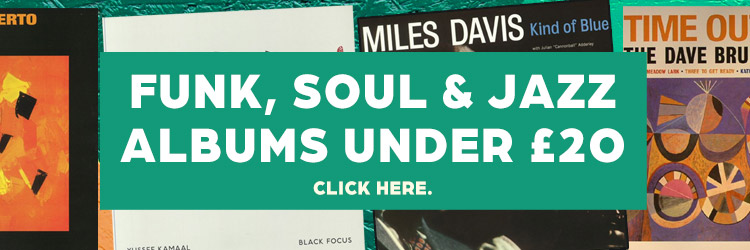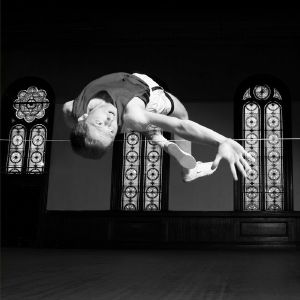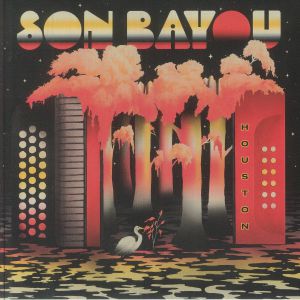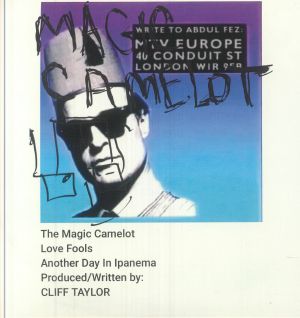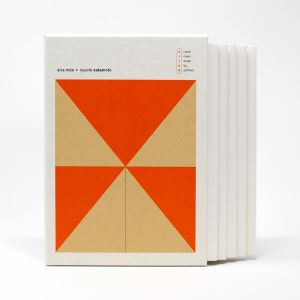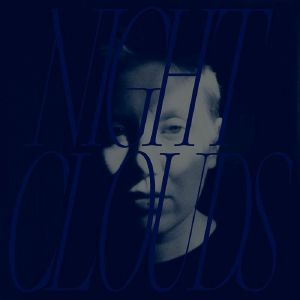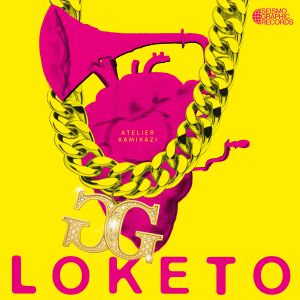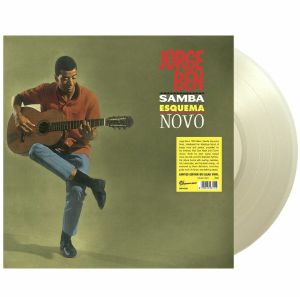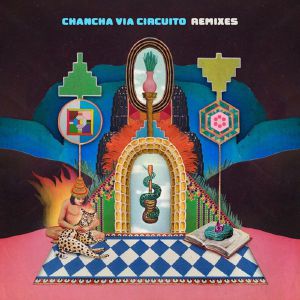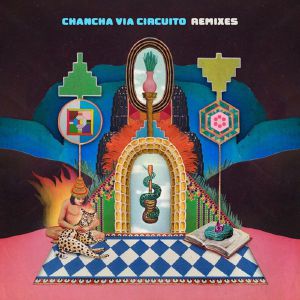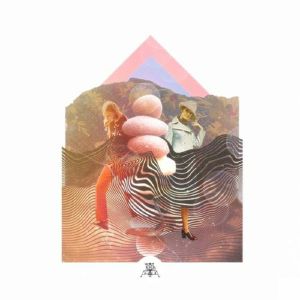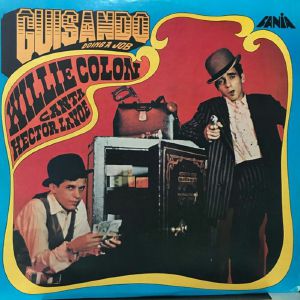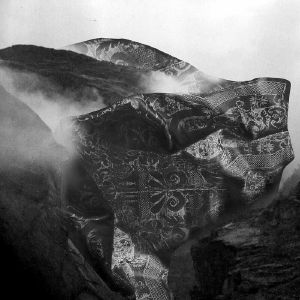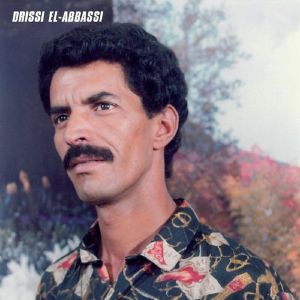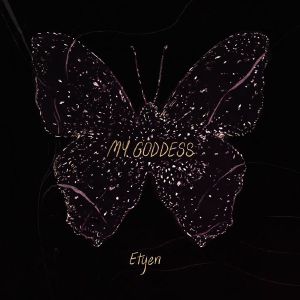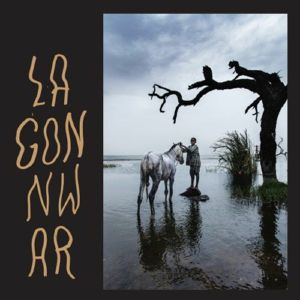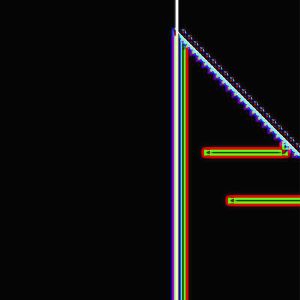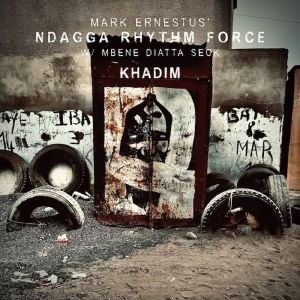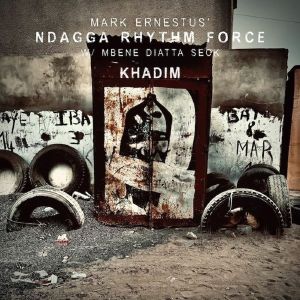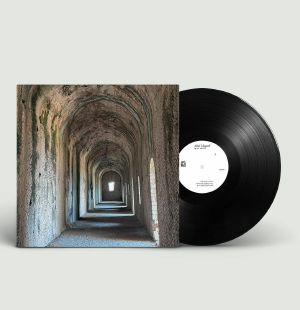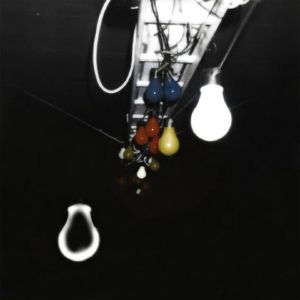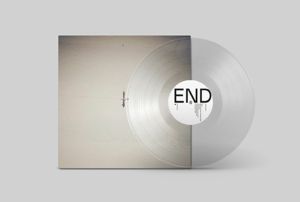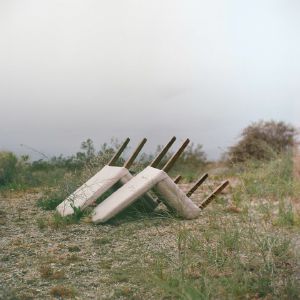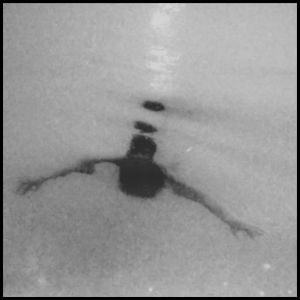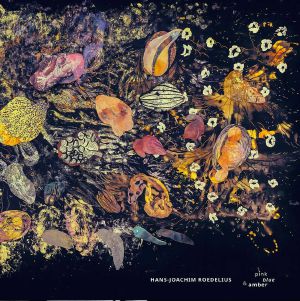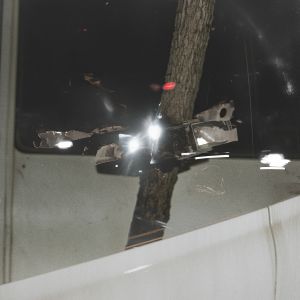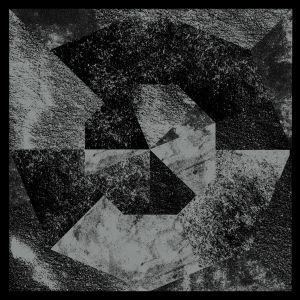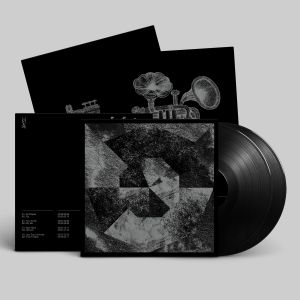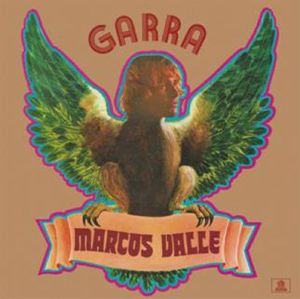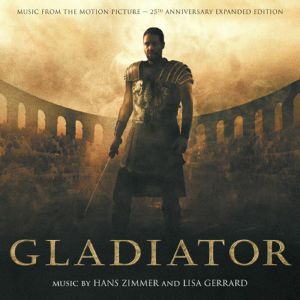Back catalogue:
Juno's full catalogue of
シングル
Review: Developed as off-the-cuff cassette overdubs, work taking place in Manchester and Massachusetts, combined with syncopated vocals, Human Engineering very much lives up to its name. Narrated by Rick Myers, with long-time collaborators Andy Votel and Sean Canty in charge of the noises, it's a strange place to spend some time but it's also oddly beautiful. At first ear, the aesthetic feels rough and mechanical, definitely anything but human. But as things draw us further in to whatever this plain is, the organic at the root of everything rises to the surface. Suddenly, the obtuse noises no longer sound alien, and instead have taken on their true form - products of people, perhaps artefacts from a time we're about to forget. One in which machines were ours, not their own.
… Read more in stock $18.08
in stock $21.20
in stock $16.11
アルバム
Review: This beautifully presented box set gathers all five albums from Alva Noto and Ryuichi Sakamoti's V.I.R.U.S series, a collaborative project spanning five albums originally released between 2002 and 2011. Disc one (Vrioon) sets the tone, with Sakamoto's beautiful (and frequently effects-laden) piano motifs rising above glitchy minimalist rhythms and experimental ambient soundscapes. The albums that follow offer subtle shifts in their collaborative sound whilst retaining the same core artistic approach, with the pair frequently alternating between poignant, slow-burn minimalism and emotive, mood-enhancing ambient maximalism. Throughout, the pair beautifully balance hard-wired electronic experimentalism with classical musicality.
… Read more in stock $180.54
Review: Swedish composer Ellen Arkbro's Nightclouds is a deeply introspective and romantic turn that collects five solo organ improvisations recorded across Europe in 2023-24. Departing from installation-based compositions, Nightclouds explores slow, chordal improvisations rich in texture and atmosphere while drawing on sacred music, ECM jazz and minimalism. Along the way, Arkbro creates immersive soundscapes that balance austerity and emotional depth while shifting between meditative stillness and modernist tension with standout recordings like 'Morningclouds' and two variations on the title track. Through meticulous mic placement and tonal clarity, Arkbro draws you in with the intimacy and vastness of her sonic world.
… Read more in stock $27.98
Review: On their second release, Atelier Kamikazi continues to deliver raw, collaborative lyrics drawn from their experiences as street kids in Kinshasa, the capital of the Democratic Republic of the Congo. Like their debut on Seismographic Records, the group reflects on the harsh realities and surreal beauty of life in the city as they resist corrupt politics, challenge religious hypocrisy embodied by a figure they call "Priest Cat's Heart", and confront the dangers of "Bomb," a potent street drug. With vivid metaphors and unflinching honesty, they warn against its use while affirming their true tools for survival: words, wisdom and Loketo-the liberating hip-swing of Congolese dance.
… Read more in stock $30.50
Review: Chris Bangs' varied and eclectic musical journey is a key reason he was chosen to curate a compilation for Ace. With a background ranging from space rock with The Mighty Om to DJ residencies across London, Bangs' career spans numerous genres, from jazz, funk, to soul. Bangs' DJ sets and parties - in such time-honoured venues as Special Branch in Brentford, London - were seminal in the evolution of the acid jazz genre alongside Gilles Peterson, where "acid jazz was never meant to be more than a pisstake". His foray into production, such as the proto-acid jazz classic 'Psychedelic Jack' with Peterson on vocals, cemented his legacy, but it's curation highlights such as this that really get our gears going. Hold tight as we scour early acid jazz brilliants from Gunky to Vera Cruz to Brazilian Skies to Jubilation.
… Read morePlayed by: Pete Haigh
in stock $23.45
in stock $13.28
Samba Esquema Novo (limited hand-numbered clear vinyl LP)
Cat: DMOO 092. Rel: 30 May 25
Review: Game-changing samba king Jorge Ben's 1963 debut album Samba Esquema Novo marked the beginning of a legendary career in Brazilian pop. Featuring the iconic tracks like the oft-imitated but never bettered 'Mas Que Nada' and 'Chove Chuva,' the agenda-setting album showcases Ben's early blend of vibrant bossa nova rhythms, rich choruses and his distinctive minor-key guitar style. While not yet embracing the Afro-rock influences of his later work, this release highlights a light yet energetic sound with big-band arrangements adding punch to the infectious melodies. It's a timeless album that remains a joyful and essential listen and captures the roots of a unique musical voice destined to shape Brazilian music for decades.
… Read more in stock $18.65
Review: Argentine electro-cumbia innovator Chancha Via Circuito (Pedro Canale) has a truly strong sense of give and take. His debut movements saw to Bienaventuranza (2018), a critically acclaimed album deep-setting his role in a gauzy downtempo reshape of the global music idiom. A full remix EP of the record followed, spewing forth fresh interpretations by echelonic music masters, including Euro-techno titan Nicola Cruz on 'Alegria', and Spanish producer Baiuca. Now, finally, comes the third in a three-step movement of remixes, this time hearing Chancha Via Circuito himself offer his own remixing hand to several of said very same artists, the works of El Buho, Nickodemus, and Lagartijeando also in tow. Deep, earthy tunes, full of natural oud harmonics blended with chanting, understated downbeats.
… Read more in stock $24.59
Nickodemus - "Do You Do You?" (feat Carol C, The Spy From Cairo & B Cool-aid - Chancha Via Circuito remix)
! low stock $10.46
Cat: LM 001CD. Rel: 29 May 25
Review: While he may well be best-known for his nostalgic, synthesiser-powered Warrington-Runcorn New Town Development Plan project, Gordon Chapman-Fox has also put out some fine music under his given name - not least 2023's ambient opus on Castles In Space's 'Subscription Library' offshoot. On Very Quiet Music To Be Played Very Loudly, Chapman-Fox delivers four expansive ambient soundscapes. He sets the tone with the Vangelis-esque synth suspense and spacey creep of 'Components', before opting for sustained, almost neo-classical sweeps and delay-laden electronic string sounds on 'Fringe'. 'Emphasis' is immersive and quietly picturesque, while closing cut 'Singular' is dark, moody and quietly paganistic - a kind of imaginary soundtrack to a 21st century folk-horror movie.
… Read more in stock $12.15
Guisando (Doing A Job) (reissue) (180 gram vinyl LP)
Cat: CR 00884. Rel: 29 May 25
in stock $37.01
Reverie (red vinyl LP + MP3 download code in spot-varnished sleeve limited to 300 copies)
Cat: PATTERN 013LP. Rel: 02 Jun 25
Review: Longfound Norweigan friends Erik Skodvin and Otto Totland pair as Deaf Center, a duo whose name plays cleverly on the notion of good hearing depending on a core of silence. Resurfacing from such nucleic muteness after five years, their new pair of extended pieces, Reverie, finds a disquiet daydream drawn from a rare live set transmitted in October 2024 at Morphine Raum, Berlin. Their first publication since 2019, it sees them in the fullest unconscious "zone", improvising, responding, encircling each other in real time. Smears of timestretched piano abound on 'Rev', while 'Erie' shoots for overtonal tension on an implied, rippling lakeshore. The music is at once gargantuan and contained, revolutionarily collapsing binaries of big and small.
… Read more in stock $45.20
Pale Ravine (20th Anniversary Extended Edition) (CD limited to 300 copies)
Cat: MIACD 035. Rel: 30 May 25
Review: Deaf Center's debut LP gets a 20-year anniversary reissue on CD, pairing the original 2005 album with 20 minutes of unreleased material from the same sessions. Originally out on Type, Pale Ravine marked the first full-length by Erik K Skodvin and Otto A Totland, who've since carved solo paths via Sonic Pieces. Drifting between chamber composition, shadowy electronics and the hiss of old tape, the record draws on their Norwegian roots and personal family histories. Grainy textures, ghostly pianos and wind-blown field recordings conjure a mood somewhere between forgotten reels of silent film and weather-worn Nordic folklore.
… Read more in stock $21.75
Review: Drissi El-Abbass's Rai Sidi Bel Abbes - Volume 2 is a superb eight-track compilation that tells the evolutionary story of Rai music from the late 1970s to the 1990s. Released by Nashazphone on four sides of wax, it highlights El-Abbassi's soft vocals and innovative fusion of traditional Algerian music with electronic elements which came after he started his career with Les Aigles Noirs and later collaborated with guitarist Ahmed Zergui. El-Abbassi embraced synthesisers and drum machines to shape a modern Rai sound that has stood the test of time and tracks like 'Maak Probleme' and 'Datli Laakal' blend nostalgic melodies with bold production to offer a vivid portrait of Rai's creative transformation.
… Read more in stock $33.62
in stock $27.98
Review: Producer and guitarist Yutaka Hirasaka enjoyed a peaceful career pitstop with Breath, one of many to top up the beatsmith and cassette artist's now towering discography, and which now comes released on vinyl for the first time. Hirasaka's approach to music covers ambient, beat-driven landscapes, a format which has led him both to immersive live performance work and commercial ends. The homely aesthetic of Hirasaka's sound is heard once more on the wordless, texturally unperturbed Breath, which clears our airways far better than any shop-bought nostrum ever could, be it via the deconstructed guitar pan-plays of 'Orion' or the marzipan piano maunders of 'Amaretto'.
… Read more in stock $56.50
in stock $25.71
Cat: BF 074CD. Rel: 29 May 25
in stock $16.38
Review: Khadim is a smart evolution of Ndagga Rhythm Force's sound-stripped down, spacious and spiritually charged. Abandoning guitars and full percussion, the four track album hones in on minimal live drumming, dubby synths (including Mark Ernestus's Prophet-5), and Mbene Diatta Seck's powerful, expressive voice. Each track is emotionally rich and narratively distinct while touching on Senegalese history, Sufi devotion and street-level struggles. Songs like 'Lamp Fall' and 'Khadim' pay homage to revered religious figures while blending traditional rhythms with contemporary electronics. After years of touring, this new direction feels deeply rooted yet forward-reaching and means this album is both devotional and radical in its dubwise majesty.
… Read more in stock $25.14
Review: It may be almost a decade since the last - and previously only - album by Mark Ernestus' Ndagga Rhythm Force outfit, but in the time the expansive, percussion-led collective has toured extensively and subtly developed their African rhythms-meets-dub trademark style. Khadim, which features extensive contributions from vocalist Mbene Diatta Seck, is not only a welcome return to the studio, but also a genuinely impressive affair. For proof, check the percussion-rich Afro-dub science of 'Lamp Fall', where Seck's effects-laden vocals spar with dub techno synth motifs and deep sub-bass over a hand percussion-heavy rhythm track, or the more dub techno-focused early morning hypnotism of the inspired title track.
… Read more in stock $12.99
Quiet Pieces (limited LP + MP3 download code)
Cat: ECH 001LP. Rel: 28 May 25
Review: Serbia's Abul Mogard inaugurates his Soft Echoes imprint - after many a career-spanning stopover with Ecstatic, VCO and Light-years - with Quiet Pieces, an inward-looking suite unearthing stillness and submerged emotions scraped from the edges of memory. Assembled from archival sketches and fragments inspired by a late uncle's collection of 78rpm classical and opera records, the album reimagines faded moments through manipulated samples played at altered speeds, filtered through effects, and folded into new compositions. The result is a dream-static fusion of past and present, where Mogard's own recollections blur with an avuncular other's. The pieces shimmer with spectral density and tactile distortion, edging into abstractions influenced in part by Phill Niblock's Boston Tenor Index; Mogard pushes into rawer and rawer dissonances over the record's course. Marja de Sanctis's cover photograph, taken at the Temple of Jupiter Anxur, captures that same interplay of decay, reverence, and resonance.
… Read more in stock $31.92
in stock $15.81
in stock $29.10
in stock $15.54
Review: The London trio of Molinaro, Moreiya, and Wendy Lavone aka Rest Symbol's self-titled debut brings together exotica, orchestral ambience, psychedelic dub and smoky soul for Brian Foote's new label FO. It's a record that reinvents downtempo music by transforming crumbled breaks into gooey caramel with string phrases aged under tape noise and Moreiya's voice sunk deep into endless reverb. There is a surrealist style to this album that brings new life to the embers of trip-hop as crackling samples and orchestral drones make for something decidedly futuristic.
… Read morePlayed by: Alexis Le-Tan
in stock $26.55
Pink Blue & Amber (limited gatefold 180 gram audiophile vinyl 2xLP)
Cat: CURIO 38LP. Rel: 29 May 25
in stock $65.27
Aborted Towns The Deadly Silence Before Utopia (black & grey tri-coloured vinyl LP limited to 150 copies)
Cat: SSRLTD 152. Rel: 29 May 25
in stock $23.16
Aborted Towns The Deadly Silence Before Utopia (LP limited to 250 copies)
Cat: SSR 152. Rel: 29 May 25
in stock $20.91
in stock $13.28
Review: Sleepdial's debut for West Mineral is a mesmerising dive into ambient dub that blurs the lines between vaporous texture and low-end weight. Across nine tracks, the producer crafts smudged soundscapes rich with submerged rhythms and fractal echoes while evoking the spirit of early Pole or Vladislav Delay. Tracks like 'Icarus Rising' and 'Blue August' balance sensual warmth with dubwise grit and maintain a steady pulse through dreamy abstraction. This vinyl-first release feels both aquatic and etheric, with dub used as a method of spatial exploration. It is seriously hypnotic and emotionally nuanced, so is a strong statement from a promising new voice in ambient electronics.
… Read more! low stock $28.53
Review: SoiSong, the collaborative project of Ivan Pavlov (CoH) and Brit industrial music royalty Peter "Sleazy" Christopherson (Throbbing Gristle, Coil), was a brief but enduring exploration of electronica's least charted realms. Coming to in 2007, the duo fused Pavlov's raw digital landscapes and Christopherson's dark, whimsical touch, bringing a bold debut and stark break from convention, blending artificial vocals with live drums, jazz noir with tropical textures, and synthetic sounds. The boundaries of genre are brushed up against, with tracks like 'Dtorumi' and 'J3z' pushing the limits of post-90s electronic experimentation. A new mix of 'Lom Tum Lai Kwee', meanwhile, adds a hallucinatory grandeur, while the closer, 'Ti-Di-Ti Naoo', evokes transformations from rehearsal to performance.
… Read more in stock $41.54
in stock $39.84
Review: We Carry Eden is an album so deep you can plunge right into it and forget the real world entirely. It comes from Son Of Chi, the latest project by Dutch ambient pioneer Hanyo van Oosterom, and it melds drones, field recordings, dub, jazz and fourth world influences across a two-part composition that features storytelling by West African vocalist Omar Ka. A founding member of CHI and Chi Factory, van Oosterom crafts textured soundscapes rooted in meditative grooves and spiritual depth and is inspired by Patmos and Hopi wisdom. He also weaves nature, myth and memory into a unified sonic journey with fine artwork by Michael Willis underlining the message of harmony.
… Read morePlayed by: Alexis Le-Tan
in stock $26.55
Cat: 634940 4 (B-STOCK). Rel: 01 Jan 90
B-STOCK: Sleeve damaged but otherwise in excellent condition
Pot-Pourri No 1: A Bencao, Bahia/Tarde Em Itapoa/Tatamiro/Morena Flor/Meu Pai Oxala/Canto De Oxum/Maria, Vai Com As Outras/A Bencao, Bahia (7:09)
Pot-Pourri No 1: Como Dizia O Poeta/Testamento/Para Viver Um Grande Amor/Morena Flor/Samba Da Volta/Rega Tres (6:32)
Pot-Pourri No 3: Chorando Pra Pixinguinha/Choro Chorado Pra Paulinho Nogueira/Carta Ao Tom 74 (feat Tom Jobim) (5:13)
in stock $28.76
Review: First released in 1971, Garra captures Brazillian legend Marcos Valle at his most playful and politically subversive i a sun-soaked record full of breezy melodics, cerebral arrangements and beneath-the-surface protest. Reissued by Spanish imprint Vampi Soul, it sounds as compellingly bittersweet as ever. Valle blends samba, soul and psychedelia into something smooth but quietly radical, with lyrics (penned by his brother Paulo Sergio) touching on everything from consumerism to cultural identity, often disguised as love songs. Tracks like 'Jesus Meu Rei' and 'Com Mais de 30' retain all their sonic charm and tropical levity, while 'Black Is Beautiful' stands out for its politicism as much as its poignancy. The arrangements are rich but never overly busy, balancing Rhodes keys, strings and rhythm with ample airiness. Garra is a magnificent reminder of how music, when done right, has the power to elevate discourse, challenge the establishment, and joyfully celebrate unity.
… Read more in stock $26.84
Gladiator (Soundtrack) (25th Anniversary Expanded Edition) (limited 3xCD)
Cat: LLLCD 1670. Rel: 29 May 25
in stock $78.55

 USD
USD




